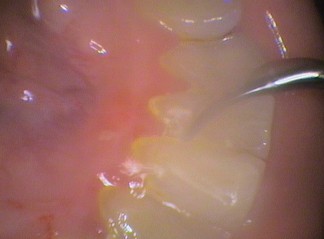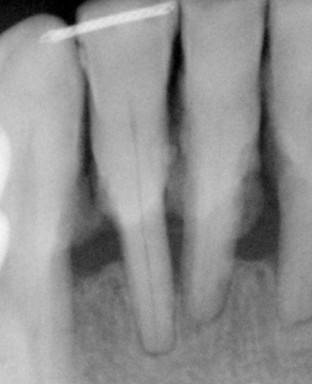Need an Appointment?
If you'd like to book an appointment with the dentist at Seymour Dental then contact us, or call us in Dulwich Hill, Sydney on (02) 9564 2397.
This is a serious oral infection that can be very debilitating and in severe cases, life threatening.
Signs and Symptoms
- Crater-like ulcers filled with plaque and food debris.
- Destruction of gum, ligament and bone around the teeth.
- Inflamed, painful, bleeding and swollen gums.
- Loose teeth.
- There may be a grey film caused by broken down (dying or necrotic) gum tissue. In severe cases, there may be fever and swollen lymph nodes under the lower jaw and the side of the neck.
- Dental x-rays or x-rays of the face may be taken to determine how severe the infection is and how much bone around the teeth has been destroyed.
A blood test may be needed to ensure there are no other underlying health issues.
Treatment
Chemical treatment or antibiotics is NO replacement for proper professional cleaning and treatment of the teeth, gums and surrounding tissues. DO NOT LEAVE IT UNTREATED. The goals of treatment are to cure the infection and relieve symptoms.
You need to visit a dentist to have your teeth professionally cleaned and to have the plaque and tartar (calculus) removed. This will probably be done under local anaesthetic and may need some visits to remove all the bacterial deposits on the teeth and roots. You may need frequent cleaning and examinations until the disorder is cleared. While the deposits remain, healing cannot occur!
The dentist or doctor may prescribe antibiotics and analgesic. Other medical treatment and medications may be needed if there are other underlying health issues.
Good oral hygiene is vital to the treatment of trench mouth. Clean and floss your teeth thoroughly, at least twice a day, and preferably after each meal and at bedtime.
Salt water rinses (1/2 teaspoon of salt in 1 cup of water) may soothe sore gums. Hydrogen peroxide, used to rinse the gums, is often recommended to remove dead or dying gum tissue. Chlorhexidine rinse will help with gum inflammation. This should be carried out under the direction of a dentist. Hydrogen peroxide treatment can make the gums feel better but it can mask the severity of the problem. Prolonged use of Chlorhexidine may stain your teeth green.
Over-the-counter pain relievers (analgesics) may reduce your discomfort. Soothing rinses or coating agents may reduce pain, especially before eating. Topical anaesthetic creams may need to be applied to the gums for severe pain.
Correct any dietary problems or other lifestyle issues that may have affected the immune system.
A thorough medical investigation to determine if any other medical conditions need to be treated e.g. uncontrolled diabetes, stress.
Next week: Prevention of Trench Mouth (ANUG) and reflection on the War
 479 Marrickville Road
479 Marrickville Road

